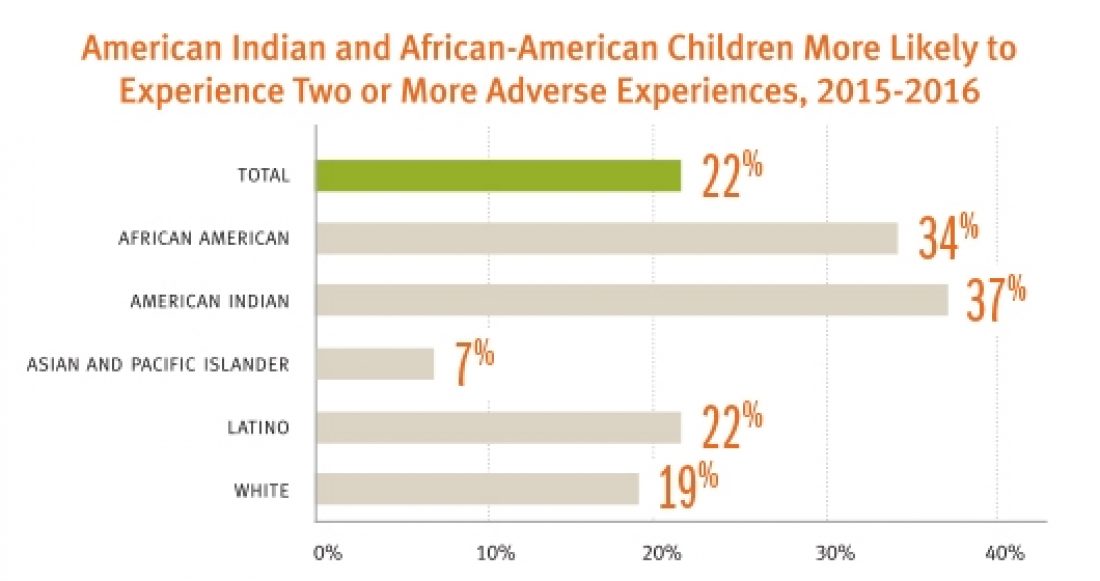More Than One in Five U.S. Kids Has Had Multiple Adverse Experiences

Twenty-two percent of children in the United States — more than 15.6 million kids total — have had two or more adverse experiences, according to the latest results from the National Survey of Children’s Health.
The term adverse childhood experiences refers to a number of potentially traumatic events, including episodes of sexual, physical or emotional abuse as well as exposure to hardships like parental divorce and parental incarceration. Such events can have negative and lasting effects on a child’s well-being and have been linked to increased risks of obesity, alcoholism and depression, according to research.
At the state level: Children living in the South and Southwest are generally more likely to have multiple adverse experiences when compared to their peers in other parts of the country. The rate is highest in Arizona, where 31% of kids have two or more adverse experiences. At the other end of the spectrum sits New York and Maryland, where 15% of kids fit this statistic.
Data on adverse childhood experiences also vary by race and ethnicity. American Indian (37%) and African American (34%) children are significantly more likely to have multiple adverse experiences compared to their white (19%) and Asian (7%) peers, according to the National Survey of Children’s Health.
Access family and community data on the KIDS COUNT Data Center:






